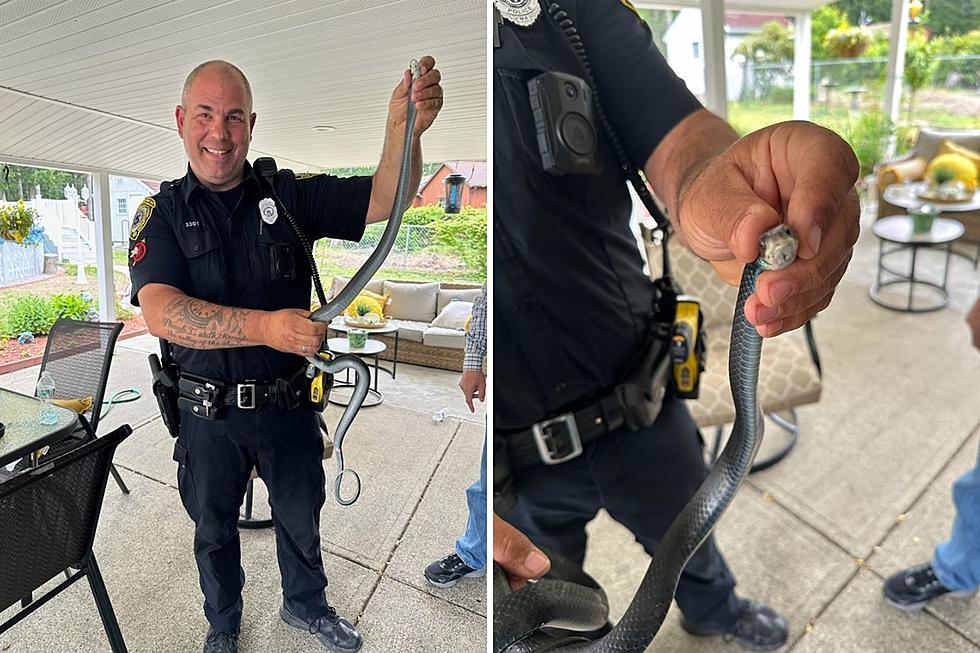
Dartmouth Police Officer Shows He’s Also an Expert Snake Charmer
A Dartmouth police officer went above and beyond the call of duty on Monday after he responded to a call to handle a snake that got into a house.
Officer Steven Canario said that he heard another office get dispatched to a call for a snake in someone's home. Shortly after, however, it was discovered that animal control doesn't respond to snake calls. Instead, homeowners are encouraged to call an exterminator to take care of snakes in a homes.
Canario decided to take a ride out to the home to help.
"I've grown up with snakes my whole life. I'm comfortable. They don't bother me. My brother and I would spend summers at our house off Chase Road in Dartmouth catching snakes, turtles, frogs and lizards. You name it, we caught it."

When he got there, Canario says the snake was curled up inside the baseboard heater in the kitchen. The homeowners were standing there with shovels as the snake's tail was exposed. No one expected the small tail to be connected to a 4-foot-long black rat snake. "They're harmless snakes," says Canario. "They could bite you, but they are not venomous."
Canario brought the snake deep into the woods and released it. "They're lucky to have one of those in their neighborhood. Rat snakes eat a lot of mice and can help keep their population down."
This is not the first snake Canario has had to handle on the job.
As big as this black rat snake was, Canario says it's not the biggest one he's scooped up. Canario describes himself as an animal lover. He's pulled over to help turtles across the road and baby deer that have been hit by cars, and caught loose goats and cows that were roaming free.
"I'm just an animal person," he said.
LOOK: Here are the pets banned in each state
These Common Plants Are Illegal in Massachusetts
More From WBSM-AM/AM 1420









